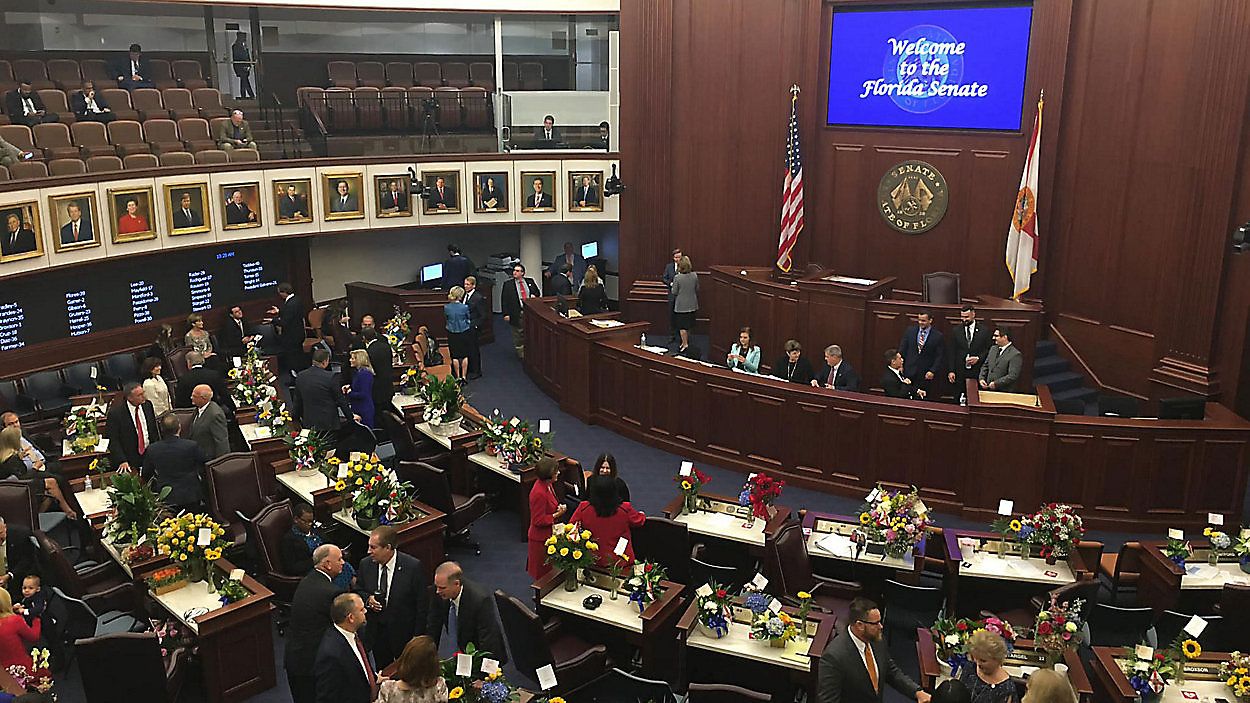TALLAHASSEE, Fla. — Florida Senators advanced a bill in Tallahassee Tuesday aimed at expanding oversight of the state’s public and professional guardians amid outcry by critics of abuse and the arrest of Orlando guardian Rebecca Fierle.
- Florida Senate, House bills headed for full votes
- Would change oversight of the state's guardianship program
- Senior Care in Question: The Rebecca Fierle Case Explained
House Bill 709 and Senate Bill 994 have each passed a series of committees and are now set to be heard by the full House and Senate.
The bills, sponsored by State Representative Colleen Burton of Polk County and State Senate Majority Leader Kathleen Passidomo of Lee County, would:
- Require courts to grant permission for guardians to sign “do not resuscitate orders”
- Make it mandatory that guardians report detailed information regarding payments
- Restricts guardians from being able to petition the court to be appointed to cases unless they are related to the person in care.”
The legislation is in direct response to the criminal investigations focused on professional guardian Rebecca Fierle.
She was arrested February 10 and is facing a pair of felony charges in connection with the May 2019 death of Steven Stryker, a 74-year-old senior who Fierle was appointed by a judge to care for as a guardian.
State investigators say Fierle directly caused Stryker’s death by filing a “Do Not Resuscitate” order against his wishes and ordered his feeding tube capped against the advice of doctors. Stryker died several days after Fierle made the order.
Florida Department of Law Enforcement and Florida Attorney General Ashley Moody say the criminal investigations into Fierle remain active and open and more charges are possible.
A Spectrum News investigation found in July 2019 that judges had appointed Fierle to care for at least 450 seniors across Florida. Orange County Judge Janet Thorpe said during a July 11, 2019 filing that Fierle “abused her powers” by filing DNRs against many of her wards without permission from the court, wards, or families.
An Orange County comptroller investigation also questioned Fierle’s potential abuse of her ward’s physical and financial care, and uncovered at least $4 million in payments Fierle received from Advent Health.
A number of guardianship advocates addressed Senate lawmakers Tuesday during a Senate Rules Committee hearing, the final stop for Senate Bill 994 before a full Senate floor vote.
Among those to address lawmakers was Angela Woodhull, a private investigator who says Fierle took guardianship of her mother in 2008. Woodhull says issues in the case led her to a four year investigation of Fierle, uncovering extensive wrongdoing that at the time went nowhere.
Florida Attorney General Ashley Moody’s office later confirmed to Spectrum News 13 that despite receiving Woodhull’s investigative report years prior, it was now being reviewed again as part of the on going investigations.
Douglas Franks also addressed lawmakers Tuesday, sharing the story of his mother who he says became a ward under illegitimate circumstances in 2009.
“When you remove the rights from somebody so they can be protected and records are sealed, it doesn’t make any sense,” Franks said. “The easiest way to solve guardianship problem is to have a jury trial.”
Currently judges in Florida have sole oversight and authority of guardianship cases.
“Rapists, murderers, pedophiles all have a jury, how come my mom didn’t have a jury, how come all of these other people don’t have a jury, it doesn’t make sense,” Franks said. “We’re taking constitutional rights away from somebody, these should not be taken away, rights are constitutional.”
Sabrina Schwartz also addressed lawmakers about the active guardianship of her mother, Lila.
“Tomorrow is February 13, 2020 and it’ll be 365 days since I’ve seen my mother,” Schwartz said. “Consequences of this guardianship with one-sided stories, narratives, along with isolation, restrictions and I am not able to see my 87 year old dear, sweet, elderly mother just blows my mind.”
Like others who have testified, Schwartz says her mother was placed into a guardianship with her rights taken away and in a concrete situation where her mother’s best interests are not put forward, but rather preyed upon by ill-acting guardians.
“I never knew anything about guardianship and justice needs to be served. I’ve not had a voice in the court, I’ve not had a voice in front of the judge,” Schwartz said. “The end result is, my mother is 87 and I have to keep going to the cemetery to see if her body is in the ground and I’ve been told even though those are her wishes, the guardian has a choice to cremate her and I pray that my mother and I will be reunited and justice will be served because criminal acts have taken place.”








